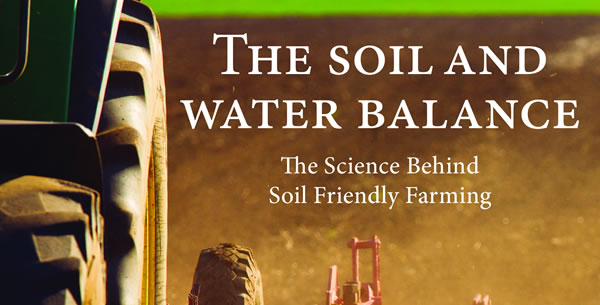The announcement of a new Agriculture Bill marks a considerable change in the way farming is viewed in UK policy. The recognition of soil as a public good – and the inclusion of support for those ensuring a healthy soil – is hugely significant.
For over 25 years research at our Allerton Project demonstration farm has driven the understanding of soil health and practical steps that could improve it on a national level, but widespread success has always been dependent on a policy commitment to these aims. This announcement should mark the end of a long campaign for farmers to be supported in protecting this precious national resource. In recent years we have argued the case for a commitment to soil health in the halls of Westminster, on the stage of farming conferences and throughout the farming press, so this is a substantial step forward.
A structured focus on food security is also an incredibly welcome addition to the Bill. With the responsibility placed on farmers to deliver biodiversity, their role in feeding our nation is often taken for granted. Over half the food we eat is produced in the UK – be it your morning bowl of cereal or the meat and vegetables in your Sunday roast – and British produce provides a key component of our exports.
Regular monitoring will help both farmers and policymakers to react to a changing landscape, be it climate change and weather conditions affecting yields or consumer demands influencing supply. This also reflects the Bill’s move towards an integrated view of agriculture and the environment. Farmers and conservationists have both been frustrated by a history of what is produced in Britain’s countryside and the wildlife that same area supports being treated in isolation. Hopefully an understanding of the way both aspects go hand-in-hand will be reflected in future policy decisions.
Whilst a big step forward, there are ways this Bill could be bolder and braver. We are told that it will help farmers contribute to the government’s commitment to reach net zero emissions by 2050. This is a little restrained and we would like to see farmers at the heart of the way forward.
Those farmers whose effort and innovation have already produced a haven of wildlife, healthy soil or sustainable yields will also be concerned at the focus on “farmers new to environmental work or hoping to do more”. We must encourage as many farmers as possible to ensure responsible use of the landscape, but what of those already achieving it? How will those Working Conservationists recognised by the GWCT be rewarded for their continued delivery of the government’s aims? We will only truly know once new policy is in place, but we will be monitoring this carefully.
Those farmers who chose to resist government grants to take out hedges in the 1970s were overlooked when others were incentivised for restoring them two decades later. We must be careful not to dismiss those whose passion has helped species recovery or increased biodiversity and continues to do so.
The importance of this bill cannot be overstated. As we prepare for life outside of the Common Agricultural Policy, the opportunity to reshape British farming will affect not only the livelihoods of hundreds of thousands of farmers, but the food on your plate and the climate and wildlife that depends on the farmed environment.
We look forward to working with Defra on the implementation of the Bill and welcome any feedback from those it is likely to effect and hope, as I’m sure do our members and the farming community, that this heralds a big step forward for agriculture and the environment in Britain.

Get the inside track on soil and water research
Priced now at just £4.95 (50% off), The Soil & Water Balance is a handy paperback which provides the inside track on soil and water research.
Presented in a Q&A style, much like our popular Moorland Balance, this 100-page book looks at the problems and solutions on topics ranging from erosion and contamination, to the impact on songbirds and other wildlife.
Combining years of research at the GWCT's Allerton Project demonstration farm with tens of external scientific papers, this is a fascinating study of how farming can adapt to the challenges it currently faces.
View Book >
or
Buy Now - £4.95 >
100% Secure. All Credit & Debit cards, PayPal, Apple Pay and Google Pay accepted.
